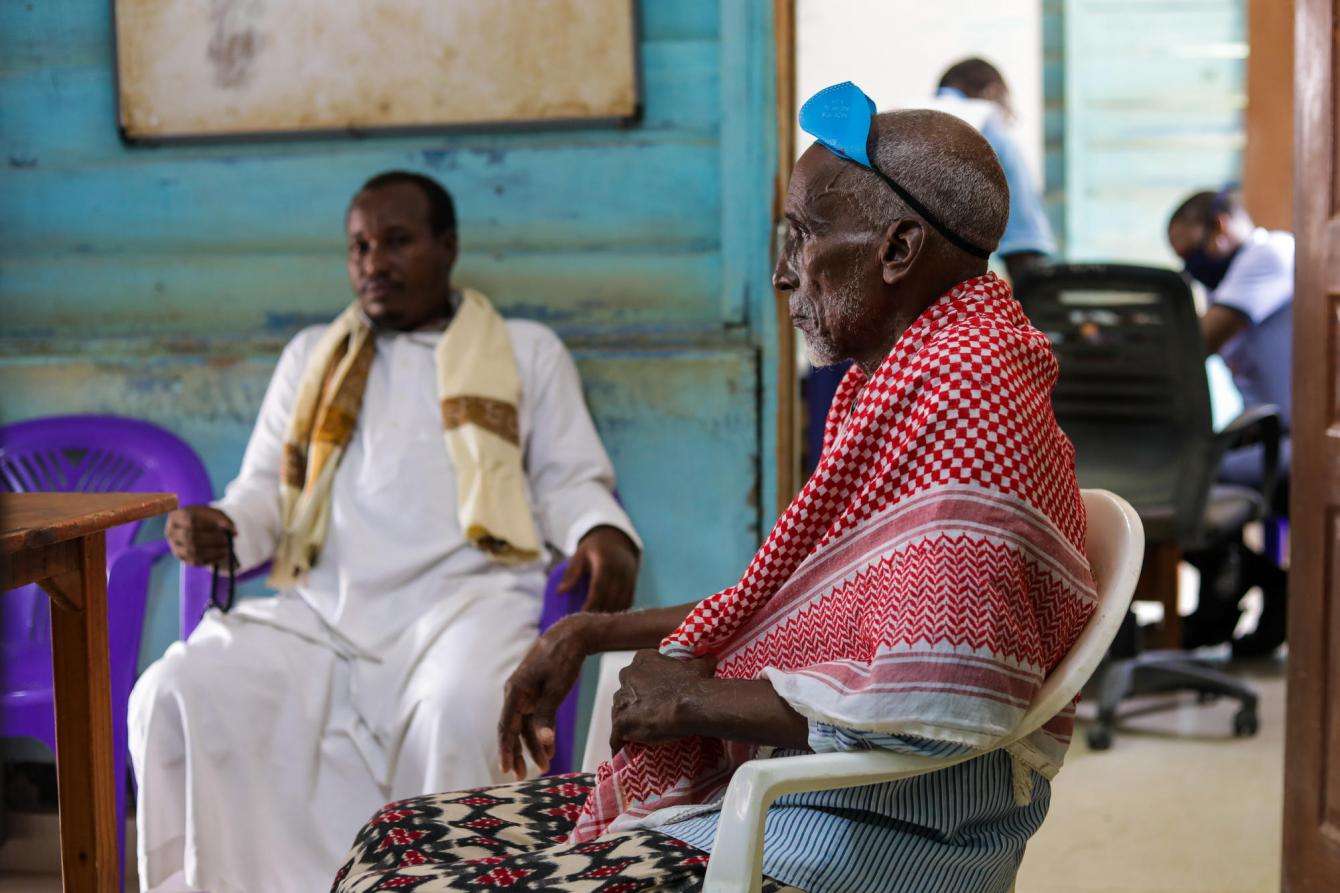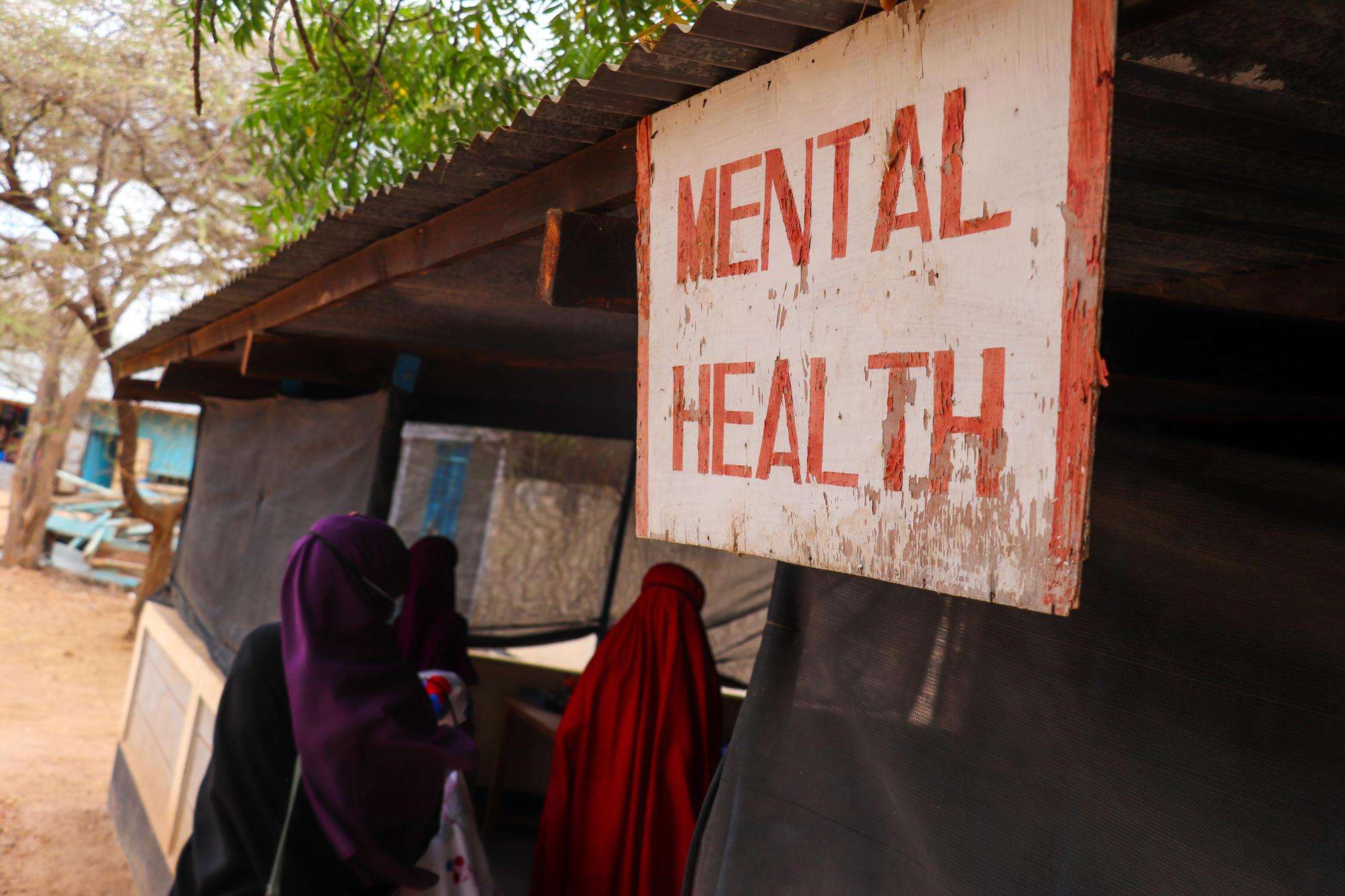A mental health crisis is growing in the Dadaab refugee complex in Kenya, where hundreds of thousands of Somalis have been trapped for decades. A fatal mix of pent-up despair, anxiety, and fear, combined with new uncertainties brought about by the COVID-19 pandemic, is pushing many refugees to take extreme measures.
Doctors Without Borders/Médecins Sans Frontières (MSF) runs a mental health clinic as part of its 100-bed hospital in Dagahaley camp, one of three camps that make up the Dadaab refugee complex. The clinic provides medical treatment for patients with various mental illnesses, including depression, schizophrenia, personality and anxiety disorders.
MSF is witnessing a dramatic deterioration in the mental health of camp residents. “COVID-19 has ended what little chance refugees had of escaping their degrading lives in the camps, compounding the mental distress for many who had nothing left but hope to cling to,” says MSF project coordinator for Dadaab, Jeroen Matthys. “We are seeing a groundswell of desperation in the camp.”
In Dagahaley, the number of attempted suicides is rising, and psychosocial consultations have jumped by more than 50 percent from last year (over the same time period through September): from 505 to 766. In the last two months, five people have reportedly attempted suicide in the camp, two with fatal results.
Many refugees in Dadaab were already frustrated with the lack of progress in finding durable solutions. Now they are facing the COVID-19 pandemic. The meager humanitarian assistance they depend on has been further reduced amid donor concerns of widening funding gaps. The World Food Programme has cut food rations by 40 percent, and many other agencies have drastically reduced their presence, severely disrupting access to basic services.
These cuts in food rations, along with a lack of gainful employment and an ever-present uncertainty about the future, have created a new mental health crisis.
In August, Haret Abdirahman’s 24-year-old son committed suicide in Dagahaley camp, after what he says was a life with no future prospects. “Despite finishing his high school education, he kept talking about how life was difficult for him in the camp without a job. He would often say that he wished he could take his own life, but I never thought he would actually do it.”

No durable solutions in sight
The number of refugees being resettled from Kenya had already slowed to a trickle even before COVID-19; now it has almost completely stopped. Returning voluntarily to Somalia, where insecurity is widespread and the health system is deeply stretched, seems even less of an alternative for most camp residents. As of August this year, the United Nations Refugee Agency had reported no returns from Kenya to Somalia. The promise of local integration for refugees has gradually faded as initiatives to extend state services to refugees remain stalled.
Finding sustainable solutions in the time of COVID-19 is hard, but meaningful action for Dadaab’s refugees has always fallen far short. A string of commitments, from the 2017 Nairobi Declaration on Somali refugees, which sought a regional solution to one of the world’s oldest refugee crises, to declarations of support at the first Global Refugee Forum have all come to nought. The little progress that had been made in expanding education opportunities for refugees is now being undermined by COVID-induced disruptions.
Thirty-year-old Fawzia Mohamed came to the camp with her family in 1992, when she was barely two years old. She has lived in the camp ever since. She laments the uncertainty that casts a shadow over their lives. “How can you stay in a country for three decades, but not know where you belong? You remain a refugee without any prospects. It has an even greater impact on the many youths in this camp, who are hurting economically and socially. The rate of unemployment is very high in the camp. But if the movement restrictions could be removed, then the living conditions of refugees could really change.”
For most Somali refugees who have known nothing but the camps, durable solutions have come to seem frustratingly elusive and unattainable. Dadaab’s refugees face the prospect of a life sentence in one of the harshest places on earth. Long-term encampment and the fast-vanishing hopes of a life free of the daily indignities of the camp is having devastating consequences on their physical and psychological health.
COVID-19 increases uncertainty
COVID-19 is likely to more significantly worsen conditions in the camps as concerns for Dadaab’s residents risk slipping further down donors’ priorities. At the same time, the economic shocks of COVID-19 around the world have greatly diminished the remittances refugees once received from families abroad. The after-effects of COVID-19 will likely deal a severe blow across societies, and poor and marginalized Kenyans will not be spared. But refugees, even those with access to some form of humanitarian assistance, remain extremely vulnerable. The slightest shock risks upending their lives completely.
“As the Kenyan government draws up COVID-19 recovery plans, integrating refugees would represent a resounding acknowledgement of its commitment to seek a permanent solution for the forgotten refugees of Dadaab,” says Dana Krause, MSF head of mission. For donors, there has never been a more apt moment to demonstrate international solidarity with refugees, and they must fully share responsibility with the Kenyan government, not only through financial commitments, but also through restoring resettlement and complementary pathways for refugees.”
MSF in Dagahaley
MSF has been providing health care to refugees in Dadaab for most of the camp complex’s existence. MSF’s health services are open to host communities and are a crucial lifeline for unregistered refugees who are denied access to basic services in the camps. MSF’s current programs are focused in Dagahaley, where it provides comprehensive primary and secondary health care to refugees and host communities. The medical services include sexual and reproductive health care, medical and psychological assistance to survivors of sexual violence, mental health care, and palliative care.
Since the beginning of the COVID-19 outbreak, MSF has put in place measures to ensure adequate infection prevention and control. This includes setting up screening at triage, establishing an isolation area, and organizing health education sessions. In Dagahaley camp, MSF set up an isolation unit with 10 beds, with the capacity to expand to 40 beds if needed, and also trained health workers to create a pool of frontline responders. At the same time, MSF also supported county governments in Garissa and Wajir, organizing training for health staff and reinforcing infection prevention measures in two sub-county hospitals.




